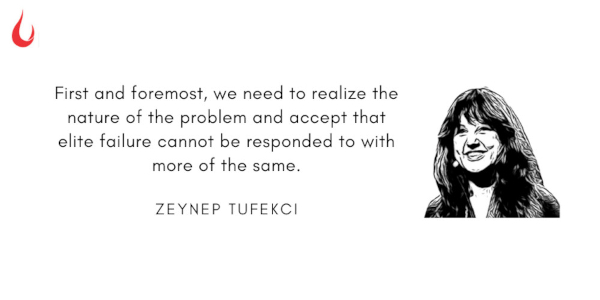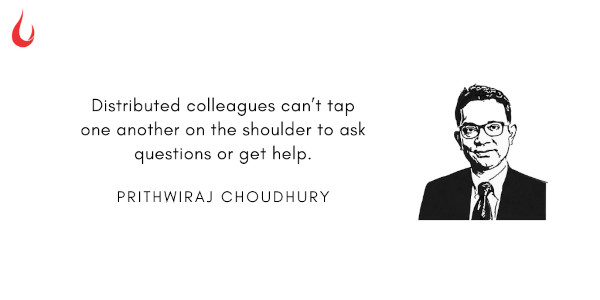[Photo by Kira auf der Heide on Unsplash]
Good morning,
In The Art of Problem Solving, (a management classic we referred to earlier in FF Daily #156), Wharton professor Russell L. Ackoff shares this story about product-market fit.
“A Mexican government agency responsible for the development of water resources decided to build a dam and use it to irrigate a large farming area the productivity of which, it believed, could thereby be doubled. When the agency's plans were completed, it sent representatives to the rural areas that would be affected to explain the project to the peasants and to determine whether they wanted it. The answers were uniformly ‘yes.’
“The dam and irrigation system were built at great expense but failed to produce the expected increase in productivity of the land. The puzzled experts went out to determine why. They found that the peasants had reduced the amount of land under cultivation, thereby obtaining more time to work in nearby towns or do nothing. They felt that the amount of work required to use all their land was not justified by the small increase in their income that it would bring about.
“‘Why,’ one of the experts asked a consultant, ‘didn't they tell us this before we built the dam?’ The consultant could have replied: ‘Because you didn’t ask the right questions. You incorrectly assumed you knew the answers.’ But he did not. Instead, he asked the expert if he played the violin. The puzzled expert answered negatively. Then the consultant asked him what he would do if he were offered a Stradivarius. He said he would accept it. The consultant asked him why since he could not play it. The expert got the point.”
Ackoff’s takeaway from the story: “The reason for one person’s giving may not be the reason for another’s receiving.” It’s as true today in the age of philanthrocapitalism, wikinomics and freemium models, as it was when building dams was a thing.
What do you draw from the story? Let us know.
In this issue:
- Why the next Trumpist won’t be a one-time president
- Solving the knowledge problem when you work remotely
- Non-verbal communication 2020
Have a good day.
Why the next Trumpist won’t be a one time president
Last month, in FF Recommends, Nick Dawes, an astute observer of media and politics and till recently Deputy Executive Director of Human Rights Watch, shared a list of people we should follow to understand the US elections. One of the names he recommended was Zeynep Tufekci of The Atlantic.
Tufekci, Dawes said, “is a sociologist who has written extensively on social media and politics. Over the past nine months she has consistently been on the leading edge of the science, persuasively advocating for the adoption of masks before that view was widespread, explaining aerosol transmission, and more recently, focussing on mechanics of spread, and their implications for policy.”
As the results of the presidential elections get clearer Tufekci has an insightful take on who the next Trumpian president will be, and why he will be much more competent than Trump.

She writes, “Make no mistake: The attempt to harness Trumpism—without Trump, but with calculated, refined, and smarter political talent—is coming. And it won’t be easy to make the next Trumpist a one-term president. He will not be so clumsy or vulnerable. He will get into office less by luck than by skill. Perhaps it will be Senator Josh Hawley, who is writing a book against Big Tech because he knows that will be the next chapter in the culture wars, with social-media companies joining ‘fake news’ as the enemy. Perhaps it will be Senator Tom Cotton, running as a law-and-order leader with a populist bent. Maybe it will be another media figure: Tucker Carlson or Joe Rogan, both men with talent and followings. Perhaps it will be another Sarah Palin—she was a prototype—with the charisma and appeal but without the baggage and the need for a presidential candidate to pluck her out of the blue.”
Dig Deeper
Solving the knowledge problem when you work remotely
One of the biggest problems with working remotely is it gets difficult to tap into the knowledge that resides in people’s heads. Casual conversations during lunch and tea, pre and post meetings solved it earlier. But it doesn’t happen when your team works remotely. This is one of the key questions answered by Prithwiraj Choudhury, Lumry Family Associate Professor of Business Administration at Harvard Business School, in his latest essay Our Work-from-Anywhere Future.

Here’s Choudhury’s answer: “The companies I’ve studied solve it with transparent and easily accessible documentation. At GitLab all team members have access to a ‘working handbook,’ which some describe as ‘the central repository for how we run the company.’ It currently consists of 5,000 searchable pages. All employees are encouraged to add to it and taught how to create a new topic page, edit an existing one, embed video, and so forth. Ahead of meetings, organizers post agendas that link to the relevant sections to allow invitees to read background information and post questions. Afterward recordings of the sessions are posted on GitLab’s YouTube channel, agendas are edited, and the handbook is updated to reflect any decisions made.
“Employees may see the extra work of documentation as a ‘tax’ and balk at the extremely high level of transparency necessary for a WFA [work from anywhere] organization to thrive. Thorsten Grohsjean and I have argued that senior managers must set an example on these fronts by codifying knowledge and freely sharing information while explaining that these are necessary trade-offs to allow for geographic flexibility.”
Dig Deeper
Non-verbal communication 2020

(Via WhatsApp)
Tell us what you think and find noteworthy. Head over to our Slack channel.
And if you missed previous editions of this newsletter, they’re all archived here.
Bookmark Founding Fuel’s special section on Thriving in Volatile Times. All our stories on how individuals and businesses are responding to the pandemic until now are posted there.
Warm regards,
Team Founding Fuel


